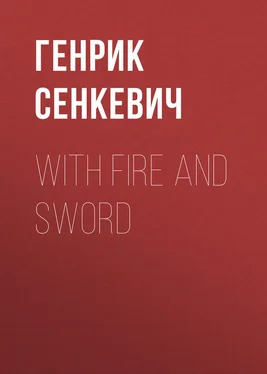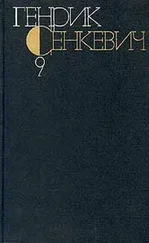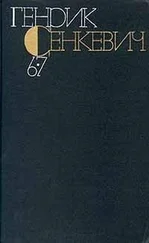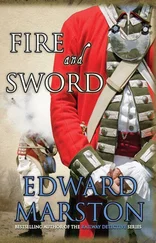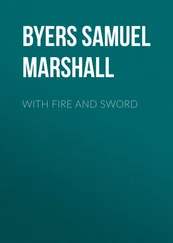Генрик Сенкевич - With Fire and Sword
Здесь есть возможность читать онлайн «Генрик Сенкевич - With Fire and Sword» — ознакомительный отрывок электронной книги совершенно бесплатно, а после прочтения отрывка купить полную версию. В некоторых случаях можно слушать аудио, скачать через торрент в формате fb2 и присутствует краткое содержание. Жанр: foreign_antique, foreign_prose, на английском языке. Описание произведения, (предисловие) а так же отзывы посетителей доступны на портале библиотеки ЛибКат.
- Название:With Fire and Sword
- Автор:
- Жанр:
- Год:неизвестен
- ISBN:нет данных
- Рейтинг книги:4 / 5. Голосов: 1
-
Избранное:Добавить в избранное
- Отзывы:
-
Ваша оценка:
- 80
- 1
- 2
- 3
- 4
- 5
With Fire and Sword: краткое содержание, описание и аннотация
Предлагаем к чтению аннотацию, описание, краткое содержание или предисловие (зависит от того, что написал сам автор книги «With Fire and Sword»). Если вы не нашли необходимую информацию о книге — напишите в комментариях, мы постараемся отыскать её.
With Fire and Sword — читать онлайн ознакомительный отрывок
Ниже представлен текст книги, разбитый по страницам. Система сохранения места последней прочитанной страницы, позволяет с удобством читать онлайн бесплатно книгу «With Fire and Sword», без необходимости каждый раз заново искать на чём Вы остановились. Поставьте закладку, и сможете в любой момент перейти на страницу, на которой закончили чтение.
Интервал:
Закладка:
The wave flowed on, indeed. Hmelnitski moved forward without delay, and marched to meet the son of the hetman. His power was really formidable; for with the Cossacks of Krechovski and the party of Tugai Bey, he led nearly twenty-five thousand trained men eager for battle. There was no reliable information concerning Pototski's numbers. Deserters declared that he had two thousand heavy cavalry and a number of field-pieces. A battle with that proportion of forces might be doubtful; for one attack of the terrible hussars was often sufficient to destroy ten times the number of troops. Thus Pan Hodkyevich, the Lithuanian hetman, in his time, with three thousand hussars at Kirchholm, ground into the dust eighteen thousand chosen men of the Swedish infantry and cavalry; and at Klushin one armored regiment with wild fury dispersed several thousand English and Scotch mercenaries. Hmelnitski remembered this, and marched, as the Russian chronicler has it, slowly and carefully; "looking, with the many eyes of his mind, on every side, like a cunning hunter, and having sentries posted five miles and farther from his camp."
In this fashion he approached Jóltiya Vodi. Two new informants were brought in. These gave assurance of the small number of Pototski's forces, and stated that the castellan had already crossed Jóltiya Vodi.
Hearing this, Hmelnitski stopped as if pinned to the earth, and intrenched himself. His heart beat joyfully. If Pototski would venture on a storm, he must be beaten. The Cossacks were unequal to armored men in the field, but behind a rampart they fought to perfection; and with such great preponderance of power they would surely repulse an assault. Hmelnitski reckoned on the youth and inexperience of Pototski. But at the side of the young castellan was an accomplished soldier, – the starosta of Jiwets, Stephen Charnetski, colonel of hussars. He saw the danger, and persuaded Pototski to withdraw beyond Jóltiya Vodi.
Nothing was left to Hmelnitski but to follow him. Next day he crossed the swamps of Jóltiya Vodi. The armies stood face to face, but neither of the leaders wished to strike the first blow. The hostile camps began to surround themselves hurriedly with trenches. It was Saturday, the 5th of May. Rain fell all day; clouds so covered the sky that from noon darkness reigned as on a winter day. Toward evening the rain increased still more. Hmelnitski rubbed his hands with joy.
"Only let the steppe get soft," said he to Krechovski, "and I shall not hesitate to meet even the hussars on the offensive; for they will be drowned in the mud with their heavy armor."
The rain fell and fell, as if Heaven itself wished to come to the aid of the Zaporojians. The armies intrenched themselves lazily and gloomily amidst streams of water. It was impossible to kindle fires. Several thousand Tartars issued from the camp to watch lest the Polish tabor, taking advantage of the fog, the rain, and the night, might try to escape. Then profound stillness fell upon the camp. Nothing was heard but the patter of rain and the sound of wind. It was certain that no one slept on either side that night.
In the morning the trumpets sounded in the Polish camp, prolonged and plaintive, as if giving an alarm; then drums began to rattle here and there. The day rose gloomy, dark, damp; the storm had ceased, but still there was rain, fine as if strained through a sieve.
Hmelnitski ordered the firing of a cannon. After it, was heard a second, a third, – a tenth; and when the usual "correspondence" of camp with camp had begun. Pan Yan said to Zakhar, his Cossack guardian: "Take me out on the rampart, that I may see what is passing."
Zakhar was curious himself, and therefore made no opposition. They mounted a lofty bastion, whence could be seen, as if on the palm of the hand, the somewhat sunken valley in the steppe, the swamp of Jóltiya Vodi, and both armies. But Pan Yan had barely given a glance when, seizing his head, he cried, -
"As God is living! it is the advance guard, – nothing more!"
In fact, the ramparts of the Cossack camp extended almost a mile and a quarter, while the Polish intrenchment looked like a little ditch in comparison with it. The disparity of forces was so great that the victory for the Zaporojians was beyond a doubt.
Pain straitened the lieutenant's heart. The hour of fall had not come yet for pride and rebellion, and that which was coming was to be a new triumph for them. At least, so it appeared.
Skirmishing under cannon-fire had already begun. From the bastion single horsemen, or groups of them, could be seen in hand-to-hand conflict. Now the Tartars fought with Pototski's Cossacks, dressed in dark blue and yellow. The cavalry rushed on one another and retreated quickly; approached from the flanks, hit one another from pistols and bows or with lances, tried to catch one another with lariats. These actions seemed from a distance more like amusement than fighting; and only the horses, running along the field without riders, showed that it was a question of life and death.
The Tartars came out thicker and thicker. Soon the plain was black from the dense mass of them. Then, too, new regiments began to issue from the Polish camp, and arrange themselves in battle-array before the intrenchment. This was so near that Pan Yan, with his quick eye, was able to distinguish clearly the flags and ensigns, and also the cavalry captains and lieutenants, who were on horseback a little on one side of the regiments.
His heart began to leap within him. A ruddy color appeared on his pale face; and just as if he could find a favorable audience in Zakhar and the Cossacks standing to their guns on the bastion, he cried with enthusiasm as the regiments marched out of the intrenchments, -
"Those are the dragoons of Balaban; I saw them in Cherkasi! That is the Wallachian regiment; they have a cross on their banner! Oh! now the infantry comes down from the ramparts!" Then with still greater delight, opening his hands: "The hussars! Charnetski's hussars!"
In fact the hussars came out, above their heads a cloud of wings; a forest of lances embellished with golden tassels and with long green and black bannerets, stood above them in the air. They went out six abreast, and formed under the wall. At the sight of their calmness, dignity, and good order tears of joy came into Skshetuski's eyes, dimming his vision for a moment.
Though the forces were so disproportionate; though against these few regiments there was blackening a whole avalanche of Zaporojians and Tartars, which, as is usual, occupied the wings; though their ranks extended so far into the steppe that it was difficult to see the end of them, – Pan Yan believed now in the victory of the Poles. His face was smiling, his strength came back; his eyes, intent on the field, shot fire, but he was unable to stand.
"Hei, my child!" muttered old Zakhar, "the soul would like to enter paradise."
A number of detached Tartar bands rushed forward, with cries and shouts of "Allah!" They were answered from the camp with shots. But these were merely threats. The Tartars, before reaching the Polish regiments, retreated on two sides to their own people and disappeared in the host.
Now the great drum of the Saitch was sounded, and at its voice a gigantic crescent of Cossacks and Tartars rushed forward swiftly. Hmelnitski was trying, apparently, to see whether he could not with one sweep dislodge those regiments and occupy the camp. In case of disorder, that was possible. But nothing of the kind took place with the Polish regiments. They remained quietly, deployed in rather a long line, the rear of which was covered by the intrenchment, and the flanks by the cannon of the camp; so it was possible to strike them only in front. For a while it seemed as if they would receive battle on the spot; but when the crescent had passed half the field, the trumpets in the intrenchment were sounded for attack, and suddenly the fence of spears, till then pointing straight to the sky, was lowered to a line with the heads of the horses.
Читать дальшеИнтервал:
Закладка:
Похожие книги на «With Fire and Sword»
Представляем Вашему вниманию похожие книги на «With Fire and Sword» списком для выбора. Мы отобрали схожую по названию и смыслу литературу в надежде предоставить читателям больше вариантов отыскать новые, интересные, ещё непрочитанные произведения.
Обсуждение, отзывы о книге «With Fire and Sword» и просто собственные мнения читателей. Оставьте ваши комментарии, напишите, что Вы думаете о произведении, его смысле или главных героях. Укажите что конкретно понравилось, а что нет, и почему Вы так считаете.
